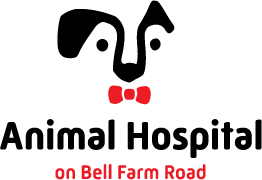Library
-
Box turtles are omnivorous. Generally, your box turtle's diet should be about 50% plant-based material and 50% animal-based material, but be sure to discuss a specific diet plan for your turtle with your veterinarian. Most young turtles eat daily, while older turtles can be fed either daily or every other day. This article discusses the best foods for your turtle, supplements, water, and light requirements for optimal nutrition.
-
Ferrets are carnivores and cannot handle a diet containing more than 4% fiber. A good quality ferret diet should contain 32-40% protein and 10-15% fat. There are several good commercial dry foods for ferrets.
-
The goal of feeding growing kittens is to lay the foundation for a healthy adulthood. Growing kittens need higher amounts of all nutrients in comparison to adult cats, but excess energy and calcium can create serious problems. Work with your veterinary healthcare team to give your puppy the best chance for success at growing into a healthy adult cat.
-
The goal of feeding growing puppies is to lay the foundation for a healthy adulthood. Proper nutrition is critical to the health and development of puppies, and it directly influences their immune system and body composition. Work with your veterinary healthcare team to give your puppy the best chance for success at growing into a healthy adult dog.
-
The preferred basic diet for guinea pigs is unlimited amounts of Timothy or other low-calcium hay, supplemented with smaller amounts of a commercial, high-fiber, Timothy-hay based guinea pig pellets. The diet should be supplemented with a variety of fresh, well-washed, leafy greens or colored vegetables; especially those high in vitamin C. Guinea pigs cannot manufacture their own vitamin C, therefore it is important that guinea pigs receive a vitamin C tablet or liquid vitamin C directly by mouth every day. Provide fresh clean water in a sipper bottle and check the tube for blockages each day.
-
Orphaned kittens need extra care to compensate for the absence of their mother, and this article outlines the basics, including how and what to feed, how to monitor their weight, how to help them eliminate, and how to keep them safe from infection.
-
Orphaned puppies need extra care to compensate for the absence of their mother, and this article outlines the basics, including how and what to feed, how to monitor their weight, how to help them eliminate, and how to keep them safe from infection.
-
All snakes are carnivores. Some eat warm-blooded prey (rodents, rabbits, birds), while others eat insects, amphibians, eggs, other reptiles, fish, earthworms, or slugs. Live prey should not be fed to snakes. Snakes can be offered thawed, previously frozen prey, or freshly killed prey. Smaller or younger snakes usually eat twice each week, while larger, more mature snakes typically eat once every week or two.
-
Feeding raw food to cats is potentially dangerous - not only to the cat eating the raw food, but also to other pets and humans in the environment, due to the high likelihood of bacterial contamination. Raw food may also not be complete and balanced and could lead to nutrient deficiencies or toxicities. Consuming raw food with bones can lead to life-threatening foreign body obstruction.
-
All pet rodents must be fed a good, high quality rodent chow available at pet stores. Many veterinarians also recommend offering hay and fresh vegetables to rodents to encourage chewing and the wearing down of their continuously growing teeth. Diets containing seeds and nuts are not recommended, as they are high in fat and low in nutrition. You can also feed your rodent fresh, well-cleaned vegetables daily and occasionally give a bit of fruit. Guinea pigs should be fed a commercial high-fiber guinea pig pellet with added vitamin C.

